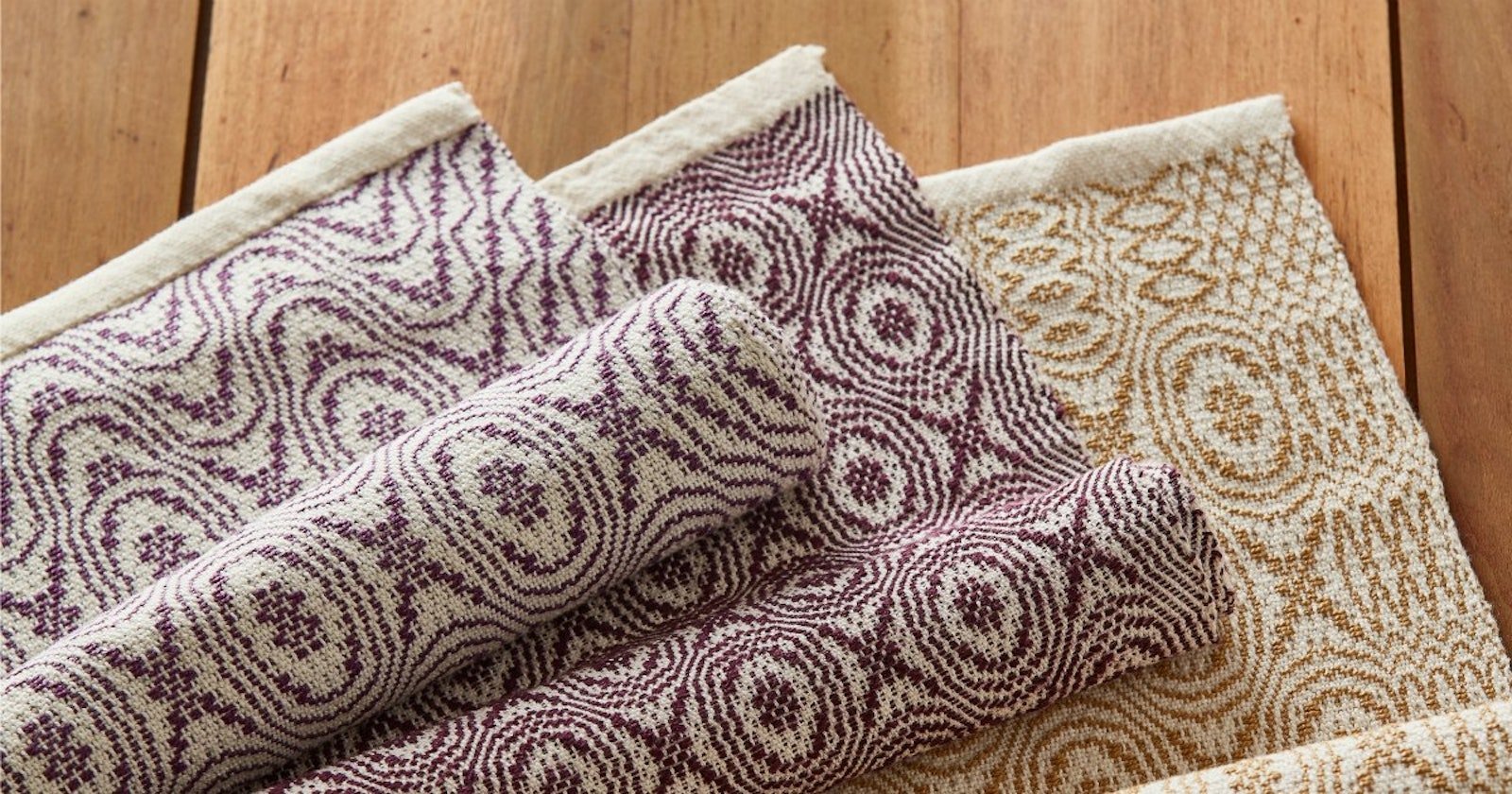Last summer, I traveled to Red Stone Glen to film a few workshops with Tom Knisely. Tom is an amazing teacher, whether he’s instructing people how to weave; how to weave rugs, specifically; how to weave linen (whether in a rug or not); or, given all that weaving, how to take care of your loom. The topic this time was a bit more theoretical: how to design your own handwoven projects.
A working draft
While it may sound super-cerebral, gear-heady and technical, Tom’s approach is not that of a calculus teacher. Sure, there’s a big section where he looks at several drafts and shows how to adapt them and combine them to get the design you want. Yes, there is a fair amount of math in here. But much of the workshop is about looking, seeing, and feeling.
What Tom saw and what he wove.
Start with the inspiration to design in the first place. What moves you, as a weaver? Is it color? Pattern? Texture? Look at images and objects that appeal and think about why they appeal to you. Love that giant oak in your backyard? Maybe you don’t want to actually weave a tree, but what about translating its mossy bark into a colorscape? Or perhaps you’re a bit Type A and want to loosen up? Try using a barcode, an Excel sheet, or the spines in a bookcase to experiment with random stripeyness in warp or weft. In his Artist Profile below, Tom talks about how important curiosity and really looking at things are to his own design process.
Yes, you will see Tom talk about moss.
Whether you are working from a pattern book or totally riffing, always start any design by planning for the cloth that you want. Drapey, sturdy, floaty, or burly? Think first about the threads you want to use. Your chosen pattern will not work as a scarf if the sett is dense enough to support a brick. If you want to weave towels, make sure you start with fibers that can absorb a lot of hard use. Mixing fibers is fine if you are trying to use up partial cones, but things can get weird if one fiber will shrink or take up differently than another. And remember: Sampling is your friend.
If you have wanted to move beyond reading drafts but aren’t sure how, Designing Handwoven Projects is a great place to start.
Designing Handwoven Projects is a new, streamable course you can watch at your own pace—anywhere, anytime, on any device.
Never stop learning, Allison



